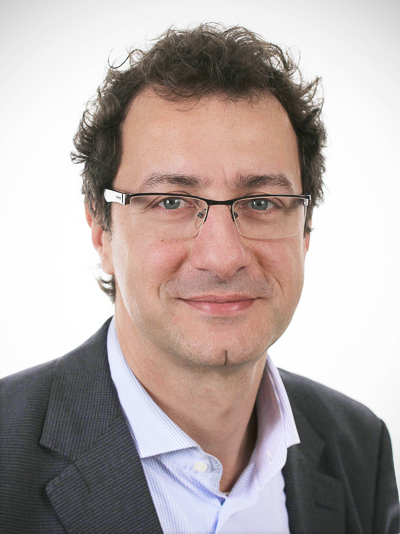
Using viruses to destroy cancer cells, researchers at the Laboratory of Oncolytic Virus Immuno-Therapeutics (LOVIT) hope to develop new strategies in this fresh field in the fight against cancer.
The Luxembourg Institute of Health (LIH) and the renowned German Cancer Research Centre (DKFZ) inaugurated the LOVIT centre this week, which is jointly funded by the Luxembourg Cancer Foundation
Dr Antonio Marchini, an Italian scientist who has been very active over the last ten years in the field of virotherapy to fight cancer, will direct the unit with a team of about eight.
Oncolytic virotherapy for cancer is a treatment based on viruses that preferentially infect cancer cells, multiply inside them and kill them by lysis, meaning by making them “burst”. Oncolytic viruses are promising anti-cancer agents because they selectively kill cancer cells and elicit a robust anticancer immune response that stimulates the body to fight cancer.
Recently, the first oncolytic virus was approved for treatment of metastatic skin cancer by the Food and Drug Administration in the United States and the European Medicines Agency in Europe.
Following this breakthrough, oncolytic virotherapy has been quickly gaining momentum with a number clinical trials on the treatment of different tumours.
One oncolytic virus is the parvovirus H1-PV, which normally infects rats and does not cause disease in humans. It is one of the smallest viruses in nature and can be considered as a “smart nanoparticle” with a natural propensity for targeting human cancer cells. Dr Marchini explains its action as “like a parasite, this virus multiplies in cancer cells taking advantage of the cells’ functions. After its multiplication, the virus - just as an intelligent ticking-time bomb - triggers the destruction of the cancer cell. Viral particles are then released in the near surroundings, enter and multiply in other cancer cells, and finally disseminate thorough the whole tumour. Importantly, healthy cells are not harmed in this process.”
At DKFZ, Dr Marchini and co-workers developed a first generation of engineered viruses endowed with enhanced anticancer activity. They introduced the DNA (genetic information) of the H1-PV parvovirus into another virus, commonly used in vaccines, the adenovirus, to generate a so-called chimera. It is a Trojan horse strategy in which the adenovirus (the Trojan horse) is used as a shuttle to bring the parvovirus DNA into cancer cells. Parvovirus particles (the soldiers in this comparison) are then produced and released outside ready to infect and kill other cancer cells.
At LOVIT, the chimeric viruses will be further developed. They also allow for introducing additional therapeutic genes that could help to further boost the body’s immune response. The experiments with the chimeras will first need to be confirmed in pre-clinical studies in animal models. Dr Marchini hopes that a first clinical trial with patients could be launched in about five years. “Virotherapy has potential to be used as well in combination with other treatments to generate synergistic anticancer effects,” said Dr Marchini. “It would be thrilling to test our new viruses in combination with chemo-, radio- and immunotherapy.”
LOVIT, integrated into LIH’s Department of Oncology, will closely collaborate with the other research units of the department, in particular with the NorLux Neuro-Oncology Laboratory working on brain tumours. At the beginning, the organisations will target brain tumours and pancreatic cancer which are among the most fatal cancer types still in need for effective therapies. In the future they plan to extend their research to lung cancers.
“Cancer research in Luxembourg has reached a high scientific level in the last years, allowing us to undergo collaborations with recognised institutes such as DKFZ,” said Dr Catherine Larue, interim CEO of LIH. “With the creation of LOVIT we will be able to investigate new therapeutic paths that are very promising for patients.”








